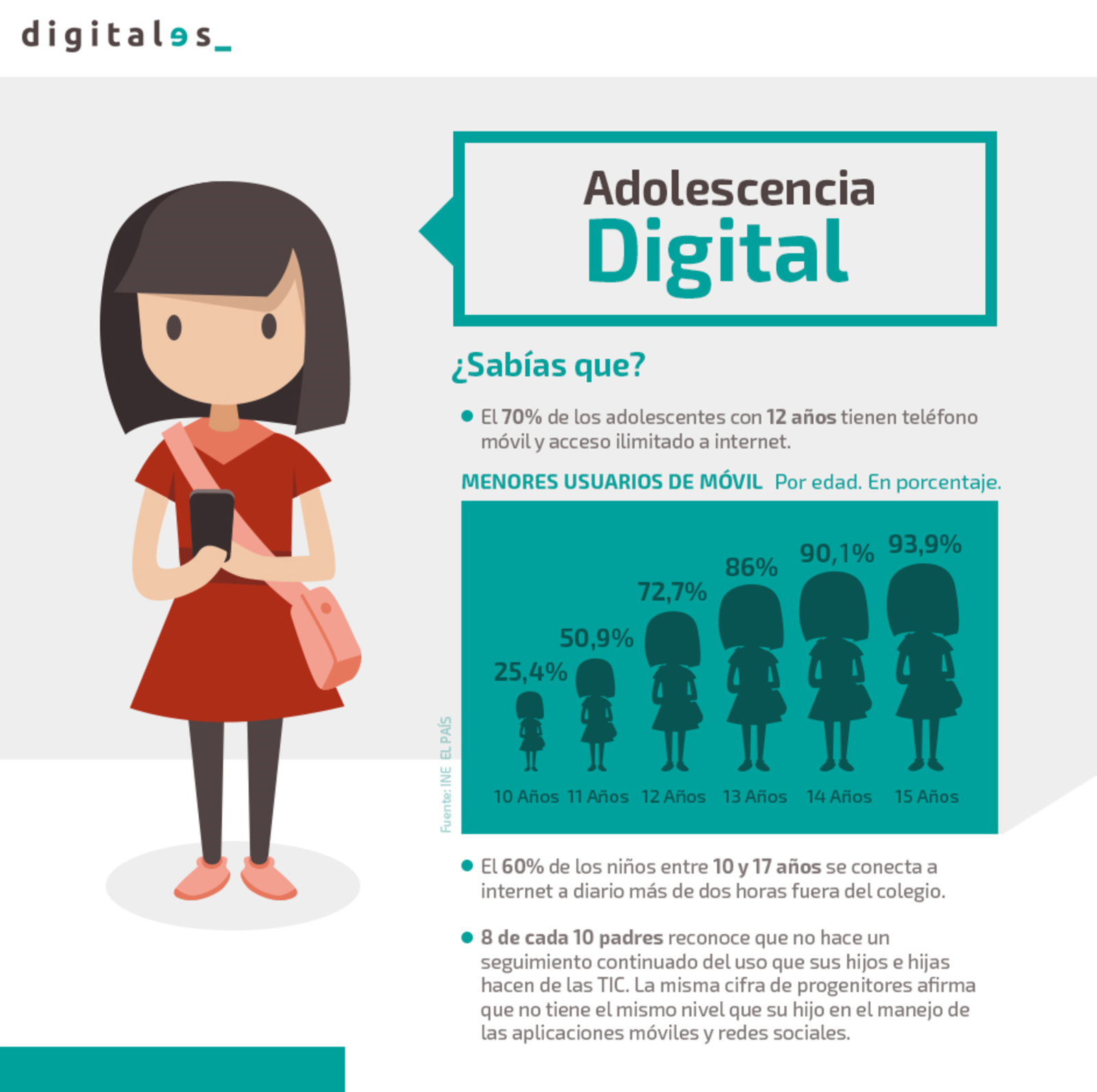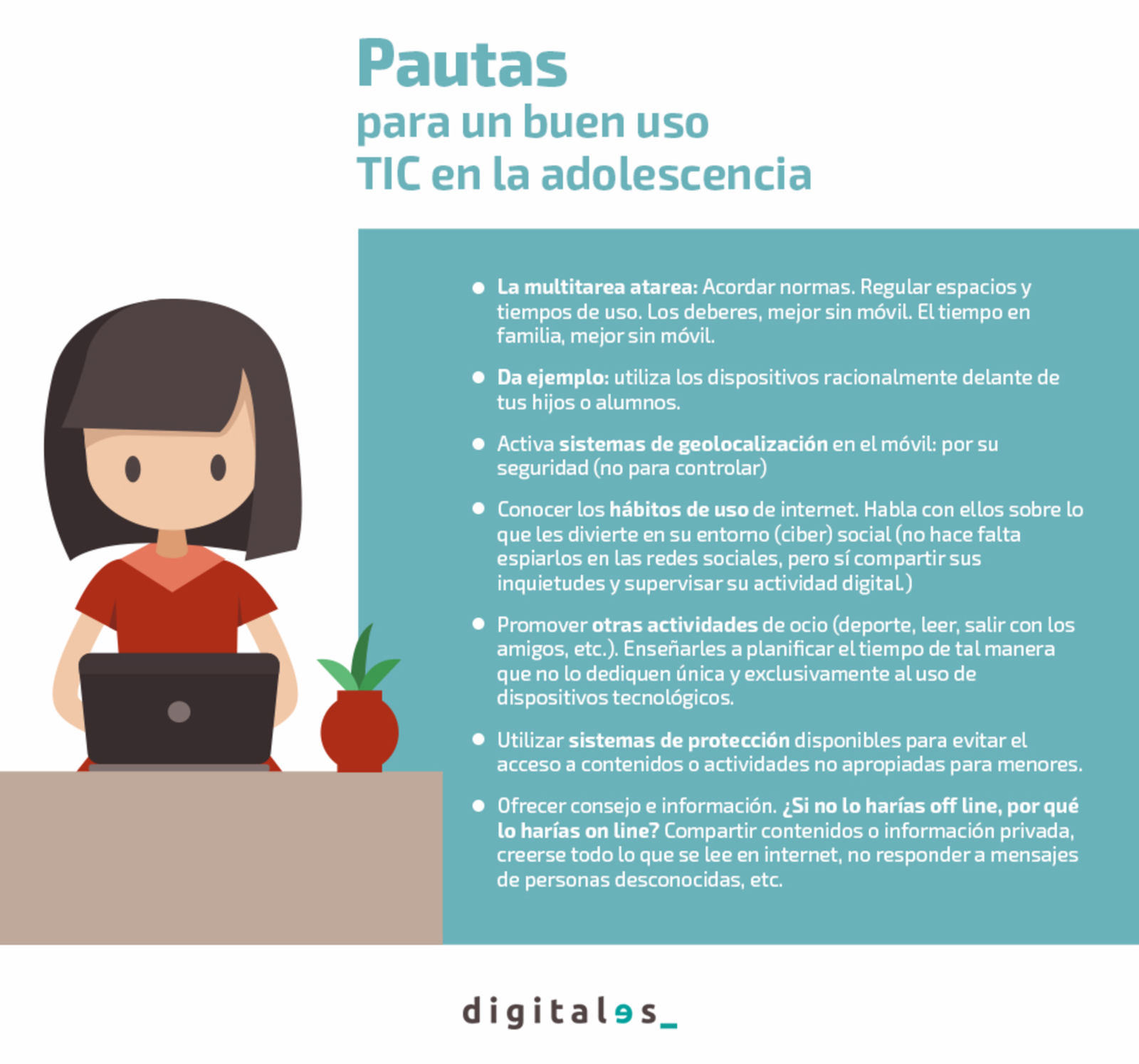11/03/2019
60% of children between the ages of 10 and 17 go online for more than two hours each day outside of school hours. If you think about it, that’s a long time. A school day usually lasts around 8 hours, including extracurricular and lunch time. If we also add the commute to school, or the time to get dressed and groomed, it is an average of 9 hours.
Another 9 on average is what a child or adolescent should devote to sleep. So we have only 6 hours a day of free time, which is a lot of free time because during those hours we have to eat dinner, have breakfast, wash up and other things. And if 2 of those 6 hours are dedicated to the Internet, we are talking about a third of their free time spent on the Net.
And what do young Spaniards spend their time on? WhatsApp leads in frequency of use, followed by Spotify and YouTube. The use of Facebook and Instagram is also in the majority. And the fact is that the use of cell phones becomes generalized from the age of 12 onwards. Some 72.7% of children are already users at this age, and 70% have unlimited Internet access.
However, to get the best out of the network, especially in a crucial period of physical and psychological development such as adolescence, it is necessary to follow a series of guidelines that help to make better use of cell phones.
1. Agree on standards
Regulating spaces and times of use. For example, homework and family time, better without a cell phone.
2. Set an example
Standards should be for everyone. We can’t ask teenagers not to look at their cell phones if we adults do it all the time.
3. Knowing the usage habits
It is interesting to know what teenagers spend their time on and what they enjoy in their cybersocial environment. You should not spy on them, but share your concerns and monitor their digital activity.
4. Promote other leisure activities
Sports, reading, going out with friends… Plan your time in such a way that it is not dedicated solely and exclusively to the use of technological devices.
5. Use protection systems
To prevent access to content or activities not appropriate for minors.
6. Offer advice and information
If you wouldn’t do it offline, why would you do it online? Share content or private information, do not believe everything you read on the Internet, do not respond to messages from strangers, etc.
7. Activate geolocation systems
Only for your safety, not for the purpose of controlling your movements.












